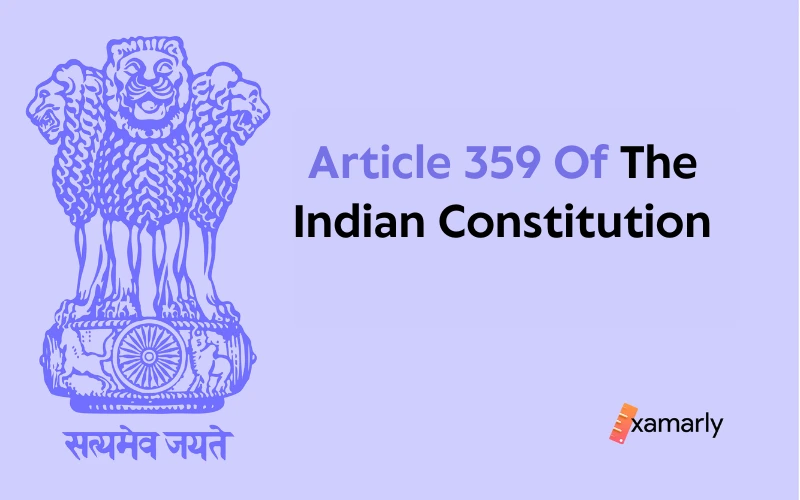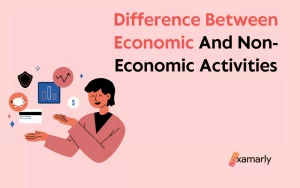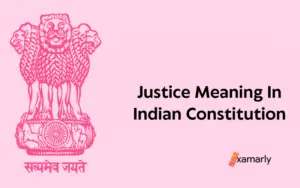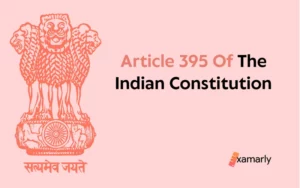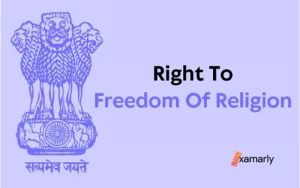Article 359 of the Indian Constitution is a provision that deals with the suspension of the enforcement of the rights conferred by Part III of the Constitution during emergencies. Part III of the Constitution is titled “Fundamental Rights”, and contains a list of fundamental rights that are guaranteed to all citizens of India.
The said Article is enshrined in Part XVIII of the Indian Constitution which is titled “Emergency Provisions.”
This piece covers Article 359 and Article 359A and helps you to prepare for UPSC preparation as it is covered in the Indian Polity of UPSC CSE Syllabus.
- Article 359 Of the Indian Constitution
- Difference Between Articles 358 And 359
- All About Article 359A Of The Indian Constitution
- Related SC Judgements And Constitutional Amendments
- Conclusion
- FAQs
- Who Can Suspend The Fundamental Rights In India?
- Which Articles Cannot Be Suspended By The President Under Article 359 Of The Indian Constitution
- Why Were Articles 20 And 21 Not Suspended During Emergency
- Which Amendment Of The Indian Has Deleted Article 359A?
- What Is Enshrined In Part III Of The Indian Constitution?
Article 359 Of the Indian Constitution
Constitutional provisions of Article 359 are as follows:
- When a Proclamation of Emergency is in effect, the President may declare by the order the right to approach any court for the implementation of such of the rights given by Part III (excluding articles 20 and 21) as may be stated in the order, and all procedures pending in any court for the enforcement of the rights so specified, shall remain frozen for the duration of the Proclamation is in force or for a such shorter period as may be stipulated in the order.
- (1A) While an order made under clause (1) stating any of the rights granted by Part III (excluding articles 20 and 21) is in effect, nothing in that Part imparting those rights shall restrict the capacity of the State as specified in that Part to make any legislation or to take any executive action that the State would be competent to make or to take but for the provisions specified in that Part, however, any law so made shall, to the degree of the incompetency, halt to have effect as soon as the order aforementioned stops to function, except as regards things done or removed to be done before the law so stops to have an effect:
Provided, however, that when a Proclamation of Emergency is in effect only in one part of India’s territory, any such law may be enacted, or any such executive action may be implemented, under this article in relation to or in any State or Union territory in which or in any portion of which the Proclamation of Emergency is not in effect, if and to the extent that the security of India or any segment of its territory is jeopardized by actions in or related to the part of the Indian territory in which the Proclamation of Emergency is in operation. - (1B) Nothing outlined in clause (1A) shall apply—
- (a) to any law that does not include a recital to the effect that such law is in connection to the Proclamation of Emergency that is in force when it is established; or
- (b) to any executive action that was taken in a manner that was not authorized by a law that included such a recital.
- (1A) While an order made under clause (1) stating any of the rights granted by Part III (excluding articles 20 and 21) is in effect, nothing in that Part imparting those rights shall restrict the capacity of the State as specified in that Part to make any legislation or to take any executive action that the State would be competent to make or to take but for the provisions specified in that Part, however, any law so made shall, to the degree of the incompetency, halt to have effect as soon as the order aforementioned stops to function, except as regards things done or removed to be done before the law so stops to have an effect:
- An order made as stated above may apply to all or a portion of Indian territory:
With the caveat that if a Proclamation of Emergency is only in effect in a portion of India’s territory, no such order may extend to any other portion unless the President determines that the extension is required because activities in or related to the portion of India’s territory where the Proclamation of Emergency is in effect pose a threat to the country’s security or a portion of it. - Each order made in accordance with clause (1) must be brought before each House of Parliament as soon as is practical after it is made.
Difference Between Articles 358 And 359
| Article 358 | Article 359 |
|---|---|
| It only relates to Fundamental Rights protected by Article 19 of the Constitution. | It applies to any and all of the Fundamental Rights whose enforcement is halted as a result of the Presidential Order. |
| The automatic suspension of the fundamental rights provided by Article 19 is a provision of Article 358, which goes into effect as soon as the state of emergency is declared. | No Fundamental Right is automatically suspended under Article 359. The president is only given the power to halt the application of specific Fundamental Rights. |
| It does not apply in situations where there is an internal emergency (due to armed rebellion).; only applicable in situations where there is an external emergency (caused by war or other external aggression) | In both situations of internal and external emergency, Article 359 is applicable. |
| For the length of the Emergency, it suspends Article 19 Fundamental Rights. | It suspends the enforcement of Fundamental Rights for a term set by the president, which could be the entirety of the Emergency or a shorter amount of time |
| It is applicable to the entire nation. | Either the entire nation or a specific region of it is covered. |
| Article 19 is wholly suspended. | It is not possible to temporarily suspend the implementation of Articles 20 and 21 under this provision. |
| It gives the state the authority to pass any law or take any executive action that is in violation of the Fundamental Rights outlined in Article 19 of the Constitution. | It gives the State permission to pass any legislation or exercise any executive power that is at odds with fundamental rights, even if the Presidential Order suspends their implementation. |
All About Article 359A Of The Indian Constitution
Application of Part XVIII to the State of Punjab is the subject of Article 359A.
The aforementioned Article was inserted into the 59th Amendment of the Indian Constitution.
The Constitution (Sixty-third Amendment) Act, of 1989 removed the aforementioned Article from the Constitution.
Check out some of the linked Articles of Part III of the Indian Constitution from the table given below:
Related SC Judgements And Constitutional Amendments
ADM Jabalpur v. Shiv Kant Shukla
Facts:
As stated in Article 21 of the Constitution, everyone has the right to life and liberty.
According to Article 359 of the Constitution, the power to go to court to execute Article 21 was put on hold while the country was experiencing an internal emergency (1975-77).
In this instance, the Presidential Order being discussed was one that was issued during the Emergency and stated that during the Proclamation of Emergency, all proceedings in any Court for the enforcement of the rights granted by Articles 14, 21, and 22 of the Constitution, as well as the right of any person to move any Court for any enforcement of those rights, would be suspended.
Judgments:
- The Supreme Court disagreed with the Respondents and upheld the Constitution’s Article 21 as the single repository of the right to life and liberty, holding that any suspension of this provision would imply the suspension of all remedies defending this right under any other law.
- The Court denied the detainees all available remedies on the grounds that it was impossible to challenge the detention order in order to enforce the right to personal liberty under Article 21 while the presidential order suspending it was still in effect.
- Additionally, the majority ruled that the detention order could not be contested on any other grounds, even if it had been issued inadvertently, leaving the inmate with no legal recourse even if the imprisonment was unlawful.
Nevertheless, with the 44th amendment to the Constitution, Article 21 of the Constitution, which guarantees the right to life and liberty, can no longer be suspended. Even in the event of a crisis, this was secured by the 44th Constitutional Amendment Act.
Conclusion
Individuals are believed to require certain rights in order to fully develop their personalities, and these are referred to as fundamental rights. They are protected by the constitution so that everyone can make use of them and that no one will be able to take them away. These fundamental rights are, however, only temporarily curtailed when an emergency is declared. In order to safeguard the community from harm, it is thought that the government must have the ability to protect itself and allow for appropriate control of rights and property.
FAQs
Who Can Suspend The Fundamental Rights In India?
Article 359 of the Indian Constitution allows the President to suspend Fundamental Rights in times of emergency.
Which Articles Cannot Be Suspended By The President Under Article 359 Of The Indian Constitution
No order made pursuant to article 359 may suspend “rights under articles 20 and 21.” According to Article 20, no individual shall be prosecuted for any offense other than the breach of existing law. No one shall receive punishment for the same offense more than once. No one may be forced to appear as a witness against himself. No individual shall be deprived of their life or personal liberty except in accordance with the procedure that has been established by the law, as guaranteed by Article 21 of the Constitution.
Why Were Articles 20 And 21 Not Suspended During Emergency
After the 44th Amendment Act, the Court decided that no one could ever have their right to life and personal liberty taken away. As a result, Articles 20 and 21 cannot be put on hold under any circumstances, not even in an emergency.
Which Amendment Of The Indian Has Deleted Article 359A?
63rd amendment has deleted Article 359A from the Constitution of India.
What Is Enshrined In Part III Of The Indian Constitution?
Every Indian citizen is granted certain fundamental rights, which are codified in Part III of the Indian Constitution. Articles 12 to 35 are covered under Part III.


